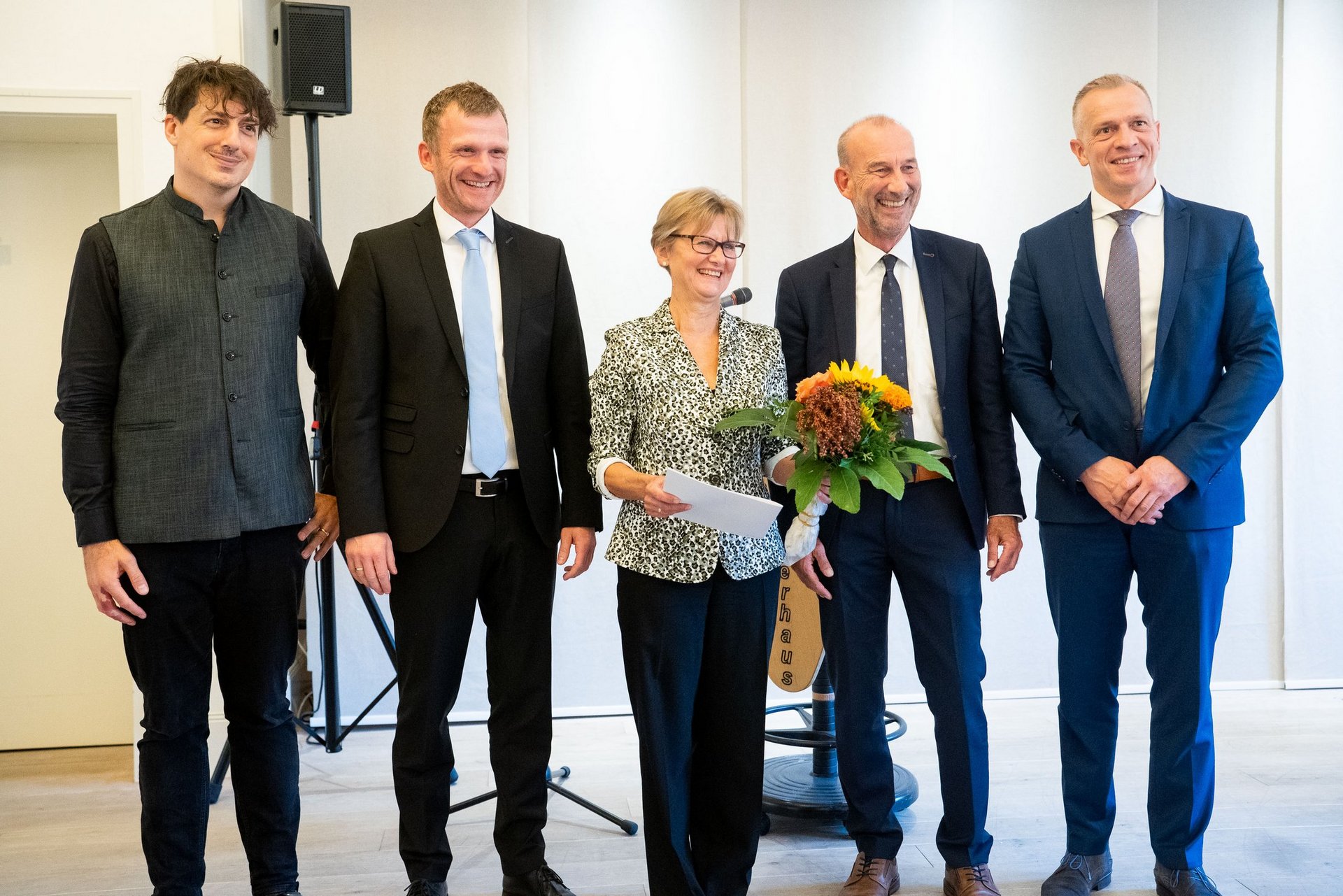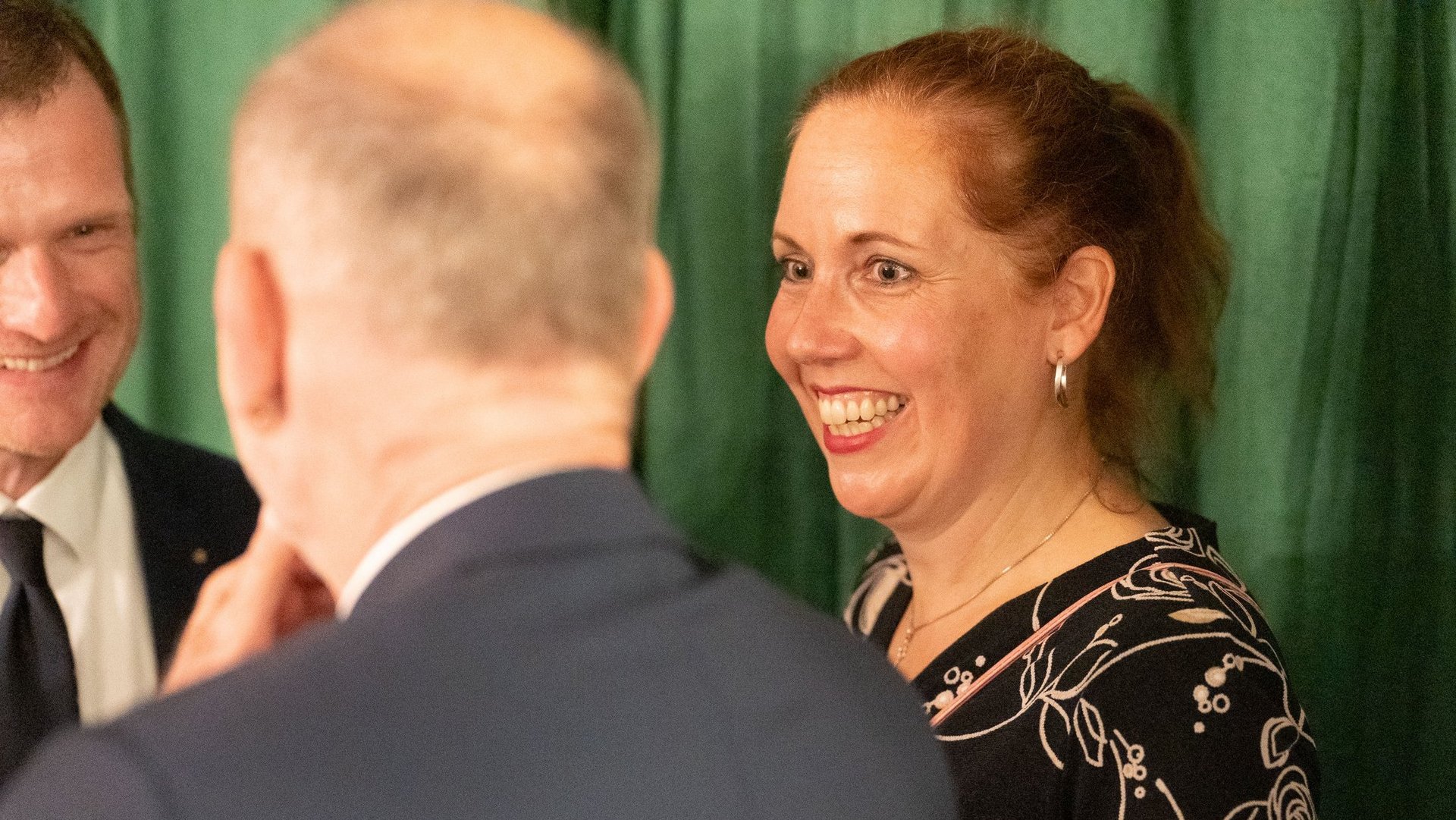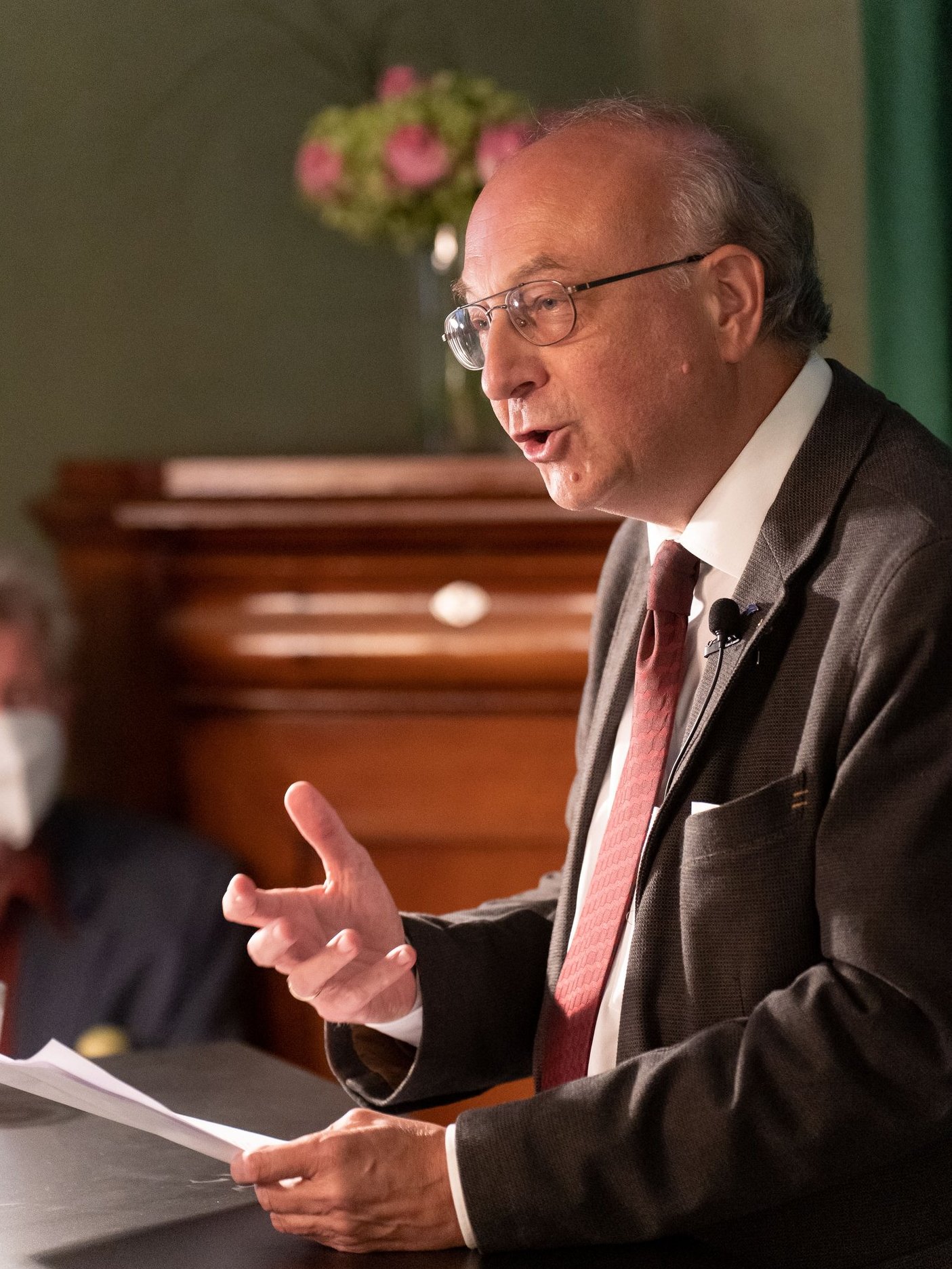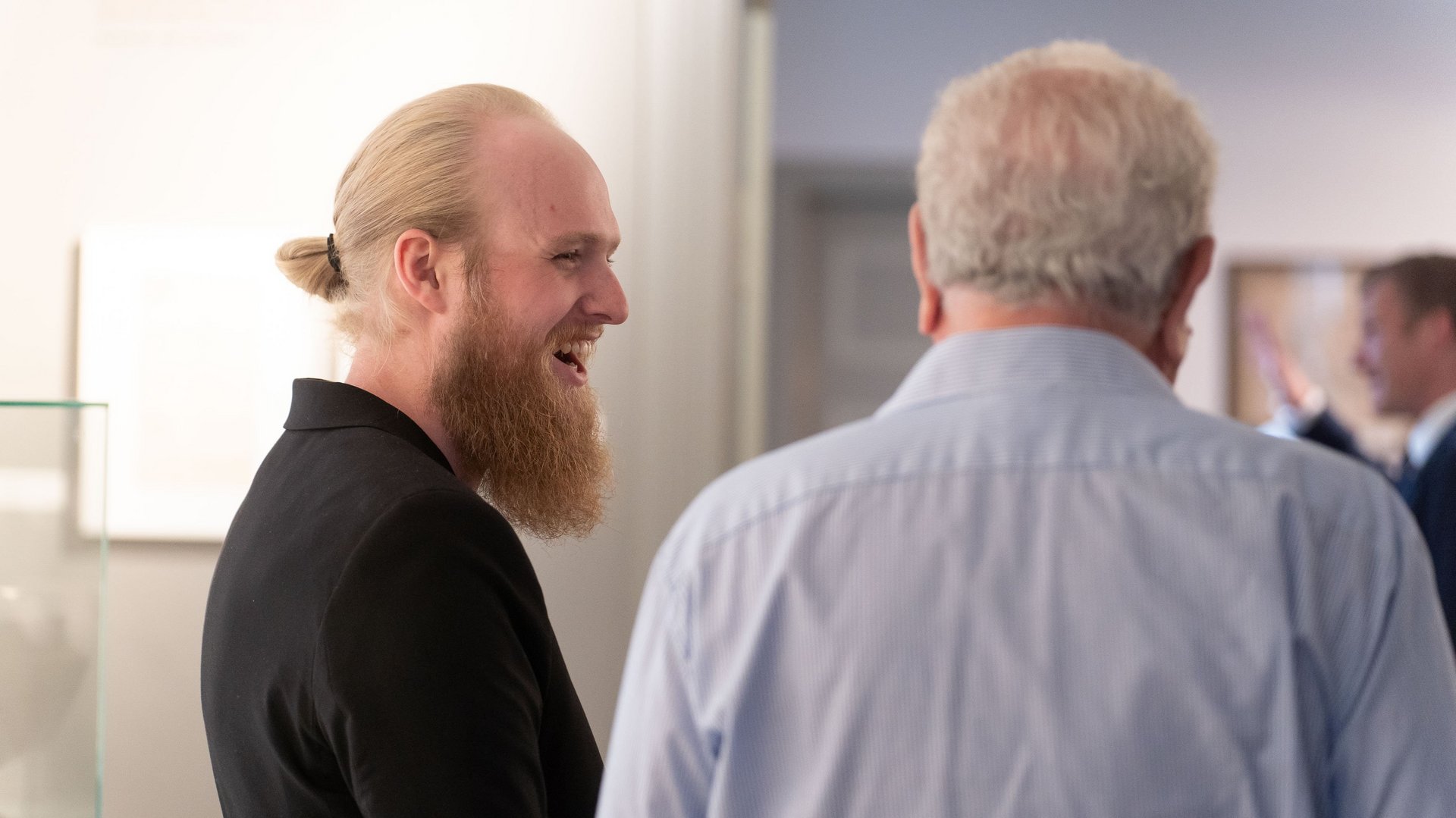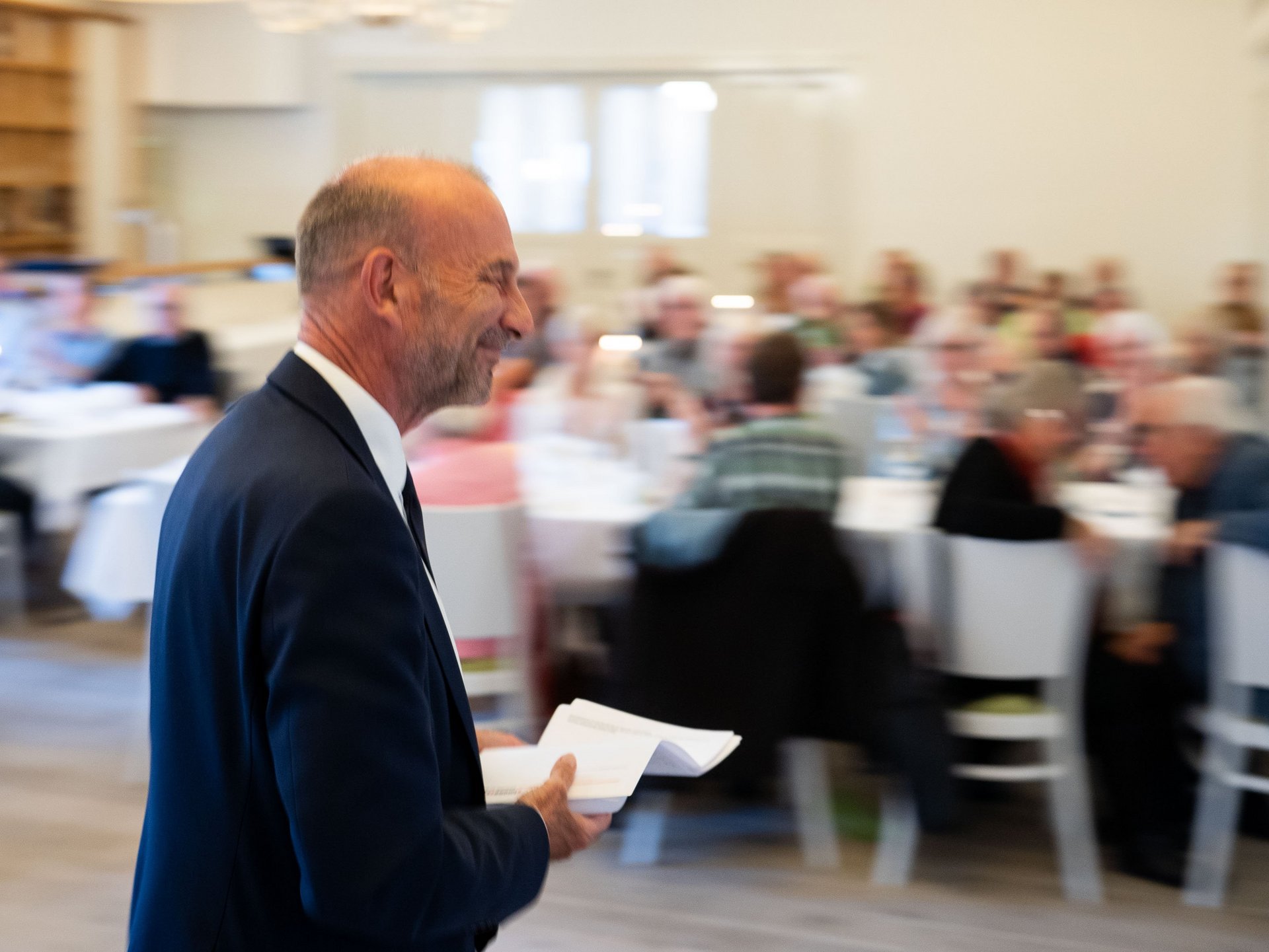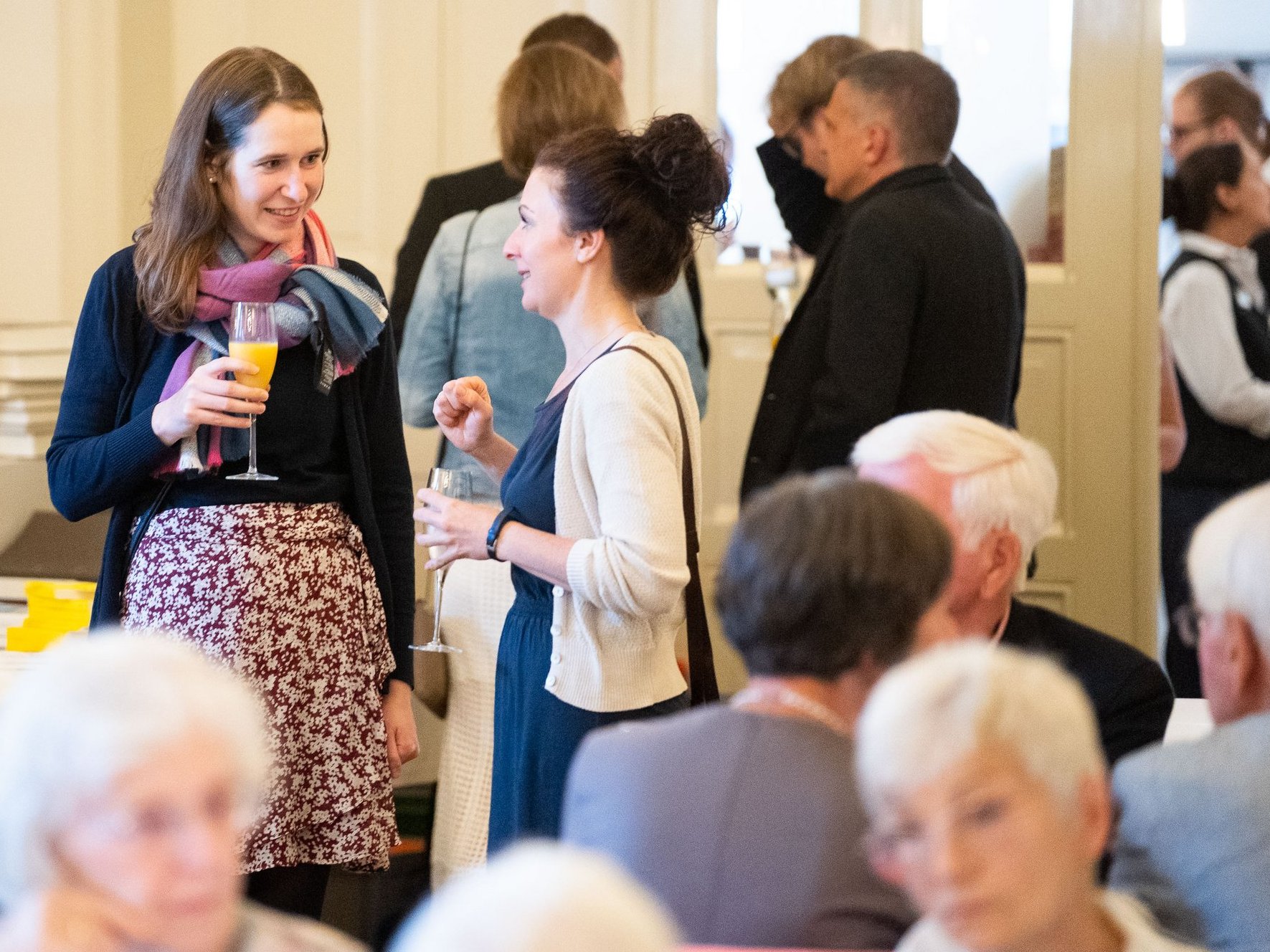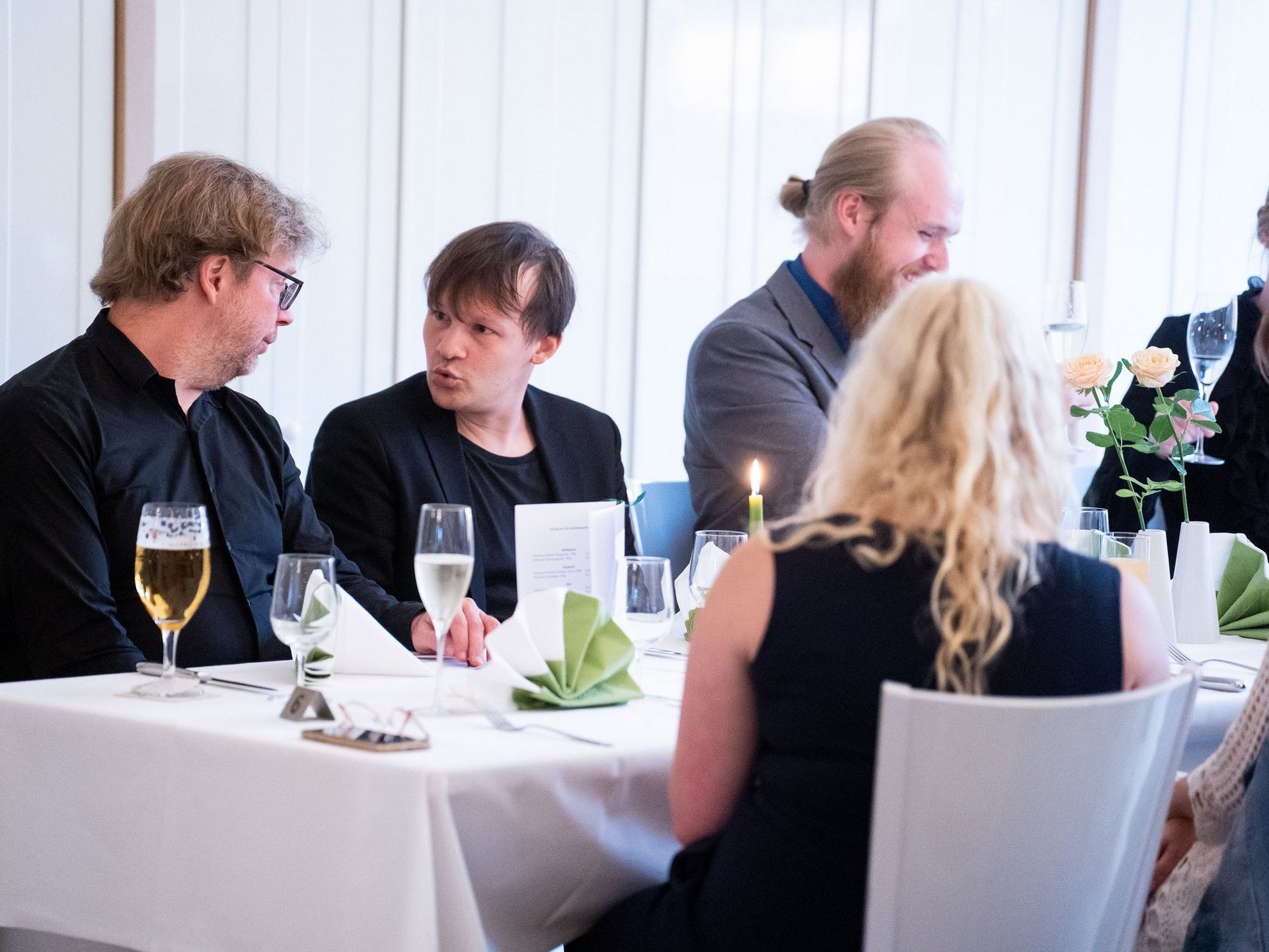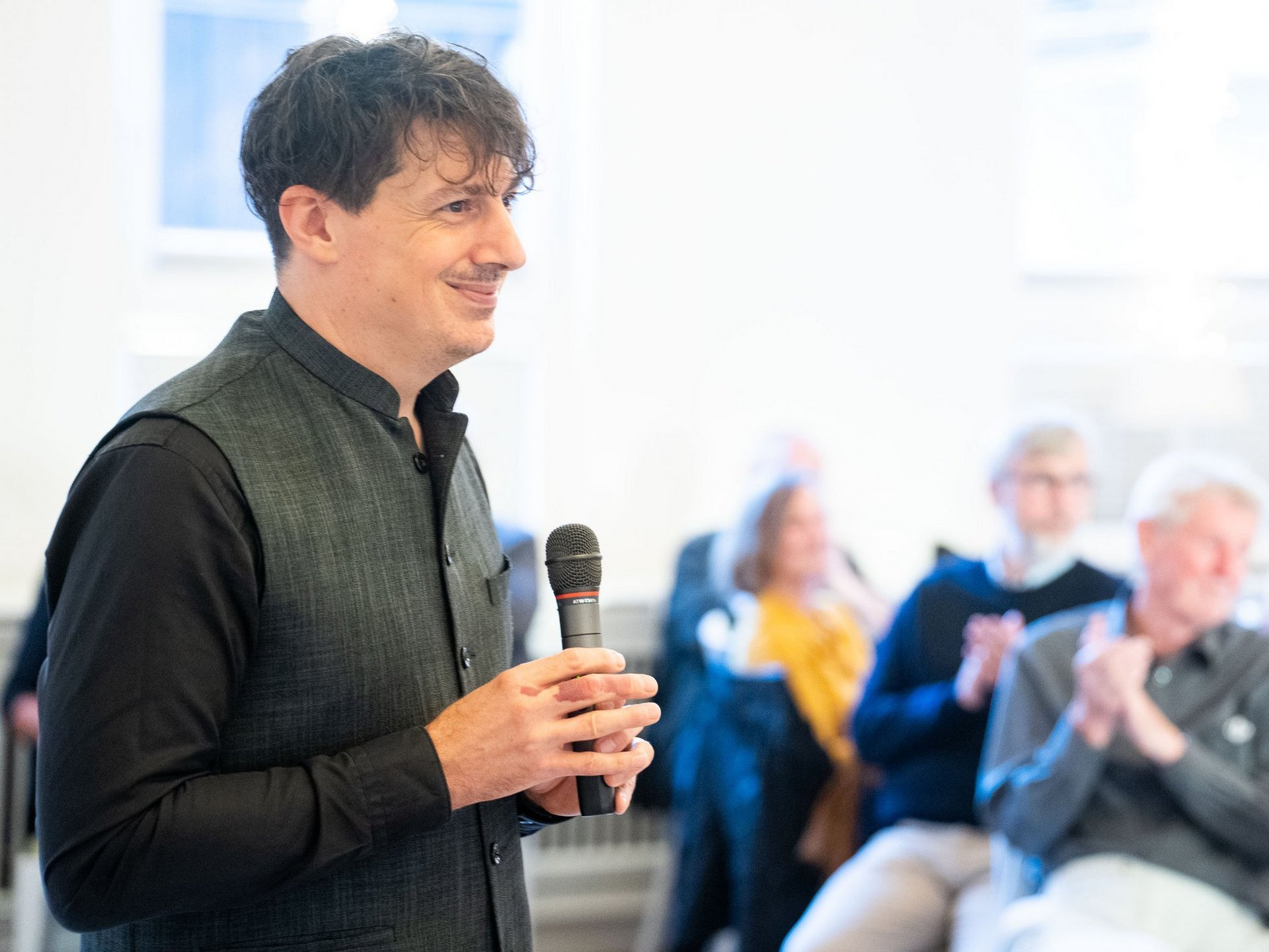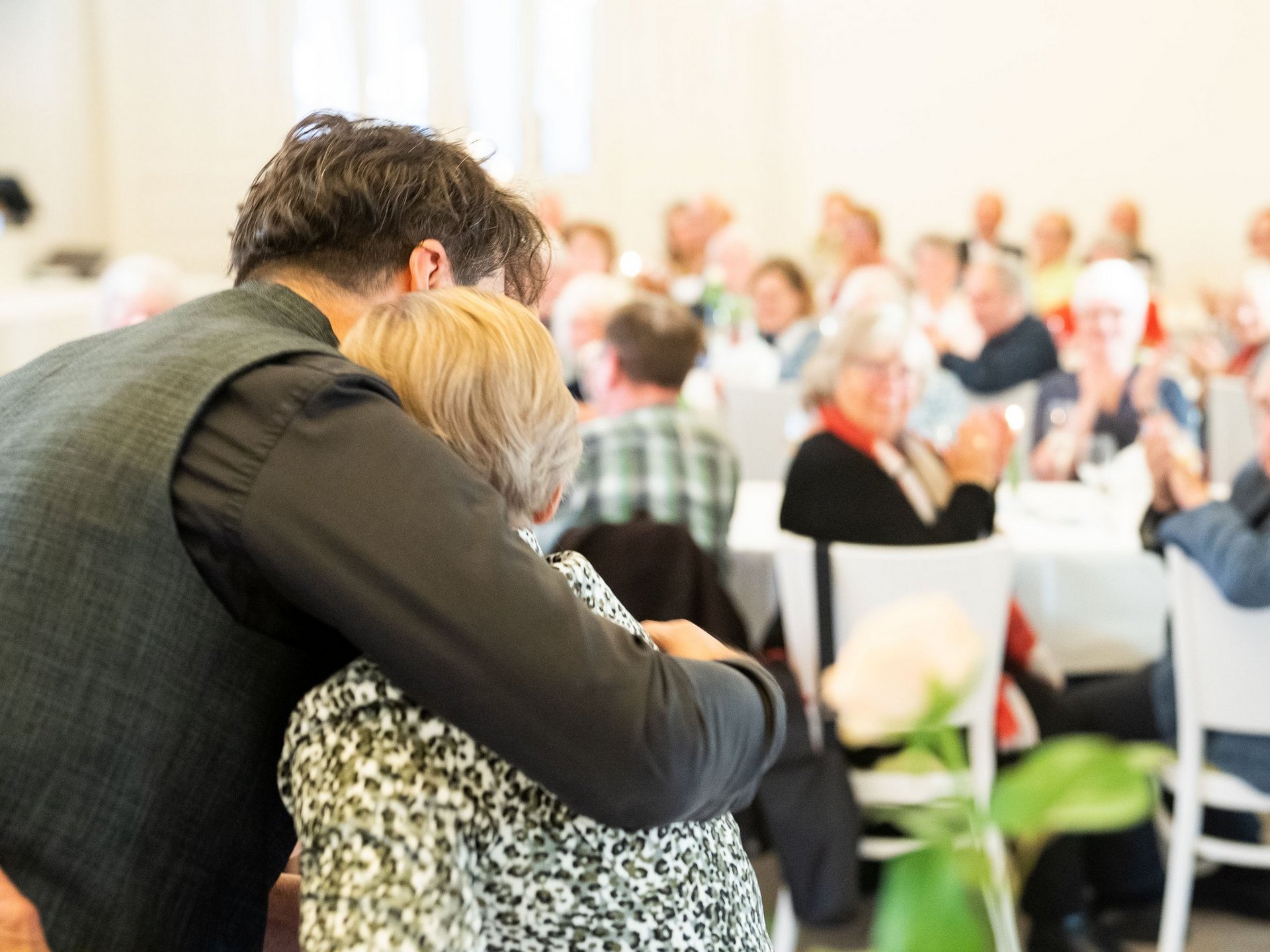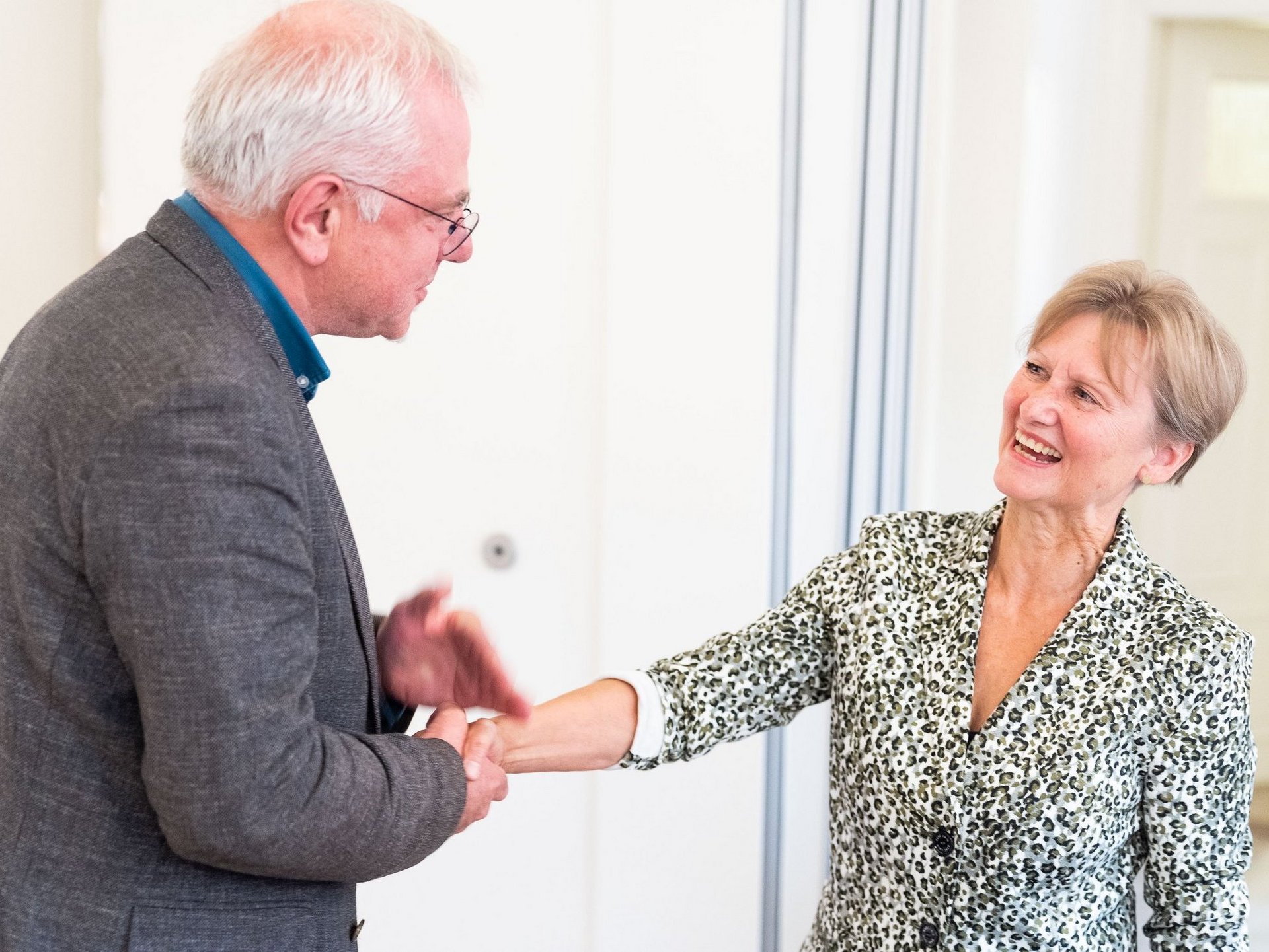Society together again
Storm Conference 9th–11th September 2022
After a three-year break due to the pandemic, the Storm Society met for its annual conference in Husum on the second weekend in September. The rush for tickets was great. Partly in longing and partly in trepidation, the organisers were confronted with the challenge that the demand exceeded the available seating capacity.
At the opening evening in the Storm House, where the 50th anniversary of the poet’s memorial was celebrated, the museum team experimented with a live broadcast via Twitch to the upper floor. Not everyone was happy with a cube seat in front of a monitor. Meanwhile, the speakers struggled with their own echo downstairs, which could be heard delayed by seconds as a ghostly digital voice from above.
While the King Charles III gave his first address to the nation, as Martin Kindl noted so cheerfully in his welcoming address, the publicist Bernd Rachuth traced the development of the former bourgeois merchant’s house into the Storm Museum in his celebratory lecture, before the Berlin writer Christiane Neudecker enthralled the audience with a reading of Viola tricolor it the very place where the novella was set.
Es ist das Wort ›Atmosphäre‹, das im Zusammenhang mit dem Dichtermuseum von Karl Ernst Laage immer wieder verwendet wurde und der Schlüsselbegriff seiner Idee für Aufbau und Ausgestaltung des Museums war. »Das Storm-Haus soll nicht ›Gedenkstätte‹ im üblichen Sinne sein«, schreibt er 1988 zur Konzeption, »sondern soll die Welt, in der der Dichter in den Jahren 1866 bis 1880 gelebt hat, so getreu wie möglich widerspiegeln. Oberstes Gebot war es deshalb von Anfang an, den überkommenen Gegebenheiten des Hauses bei der Einrichtung des Museums Rechnung zu tragen und die originale Atmosphäre der Dichterwohnung so getreu wie möglich wiederherzustellen.«
Saturday morning was devoted to this year’s main topic: Storms’ friendship with Ferdinand Tönnies, who was four decades younger. Two short lectures by Solvejg Willot (Freiburg) and Dr. Cornelius Bickel (Kiel) illuminated various aspects of the old poet’s relationship with the later founder of scientific sociology and at the same time brought together representatives of the two societies. Prof. Dieter Haselbach (Kiel), President of the Ferdinand Tönnies Society, presented Bickel's lecture, who had cancelled his attendance the day before, and Prof. Arno Bammé (Klagenfurt) expanded the historical tableau of characters in a third short lecture to include the poet Thusnelda Kühl from Oldenswort. Dr Maike Manske’s vivid presentation of Theodor Storm’s estate, which is kept in the Kiel State Library, was the finale.
After the general assembly in the early afternoon, which elected Bernd Rachuth and Joachim Kretschmar to the society’s senate, Saturday ended with a festive evening in honour of the Storm Prize winner Regina Fasold. The Handwerkerhaus, located at Süderstraße 97, was a convincing new venue with a delicious North Frisian buffet and courteous service.
Theodor Storm hat mit seinen Werken die ›graue Stadt am Meer‹ geradezu ikonisch gemacht. Verliebt man sich erstmal in das Werk eines Dichters, ich versichere Ihnen, man findet kein Ende. (Regina Fasold)
An excursion to the area around the Düsternbrooker Gehölz, beautifully situated above the Kiel Fjord, concluded the annual meeting. In three guided groups, Storm and Tönnies sites were explored and explained. Finally, the excursion group dined together in the inner hall of the Forstbaumschule restaurant, which, like the Husum Handwerkerhaus the day before, proved to be an excellent location.



